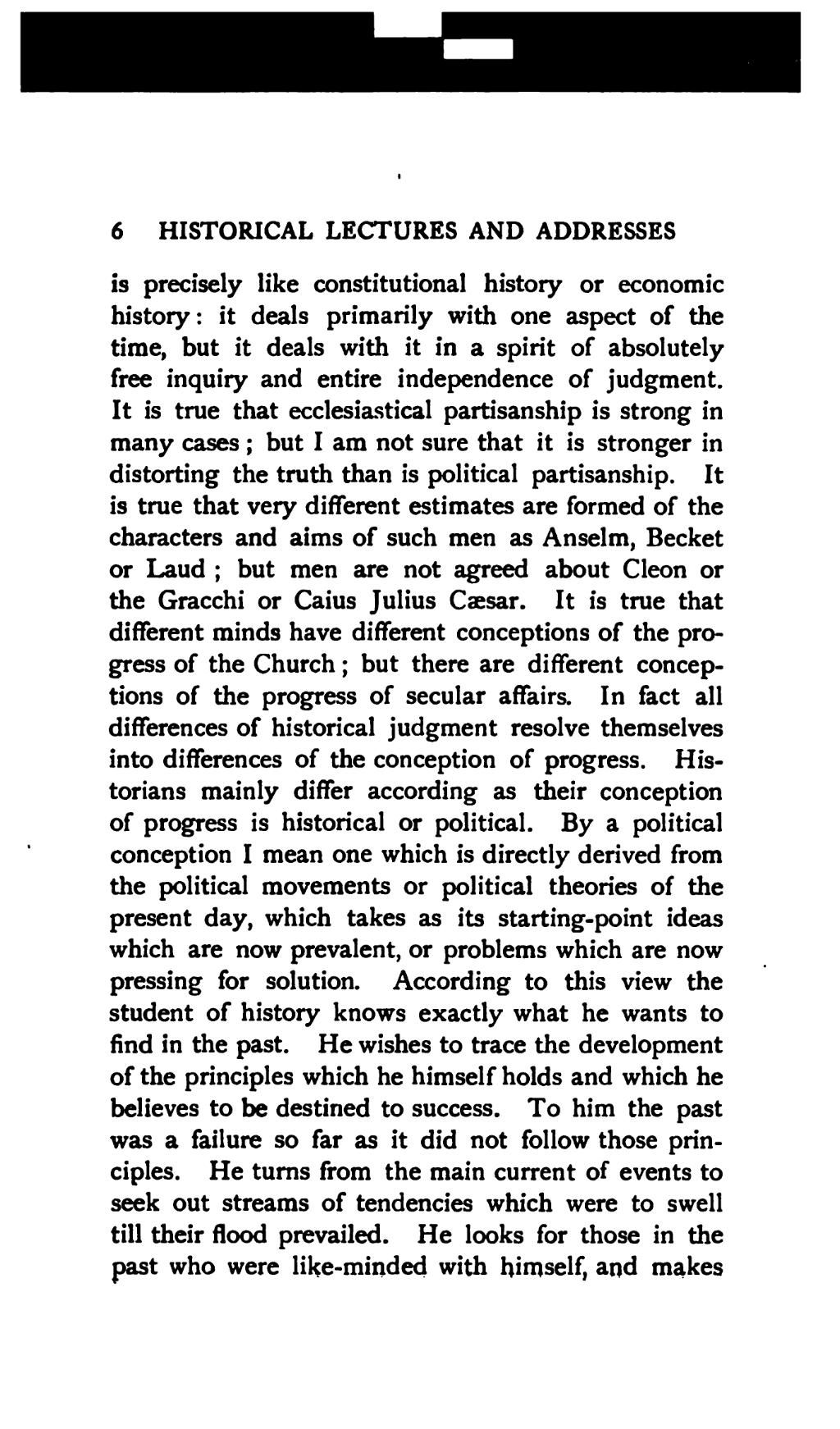is precisely like constitutional history or economic history: it deals primarily with one aspect of the time, but it deals with it in a spirit of absolutely free inquiry and entire independence of judgment. It is true that ecclesiastical partisanship is strong in many cases; but I am not sure that it is stronger in distorting the truth than is political partisanship. It is true that very different estimates are formed of the characters and aims of such men as Anselm, Becket or Laud; but men are not agreed about Cleon or the Gracchi or Caius Julius Cæsar. It is true that different minds have different conceptions of the progress of the Church; but there are different conceptions of the progress of secular affairs. In fact all differences of historical judgment resolve themselves into differences of the conception of progress. Historians mainly differ according as their conception of progress is historical or political. By a political conception I mean one which is directly derived from the political movements or political theories of the present day, which takes as its starting-point ideas which are now prevalent, or problems which are now pressing for solution. According to this view the student of history knows exactly what he wants to find in the past. He wishes to trace the development of the principles which he himself holds and which he believes to be destined to success. To him the past was a failure so far as it did not follow those principles. He turns from the main current of events to seek out streams of tendencies which were to swell till their flood prevailed. He looks for those in the past who were like-minded with himself, and makes
